CHAKO - Recycled Glass for Greater Good
Posted by Nancy Lendved on Apr 4th 2025
What is CHAKO?
In Swahili, chako means “yours.” It’s also the fitting name of the innovative social enterprise that a Zanzibarian-Dutch couple, Soulemain Mohammed and Annaloes Roelandschap, began in 2012. CHAKO transforms glass and plastic waste generated by holiday makers into beautiful, functional objects that can become yours, and creates cultural, social and economic empowerment for young, uneducated locals, mainly women. CHAKO is about giving: Bequeathing a clean environment for future generations to appreciate; offering opportunities to the locals beyond tending to the needs of the international travelers who flock to this entrancing place. There’s another word that comes to mind: karibuni, which translates to “welcome everyone.”
As if we needed coaxing.
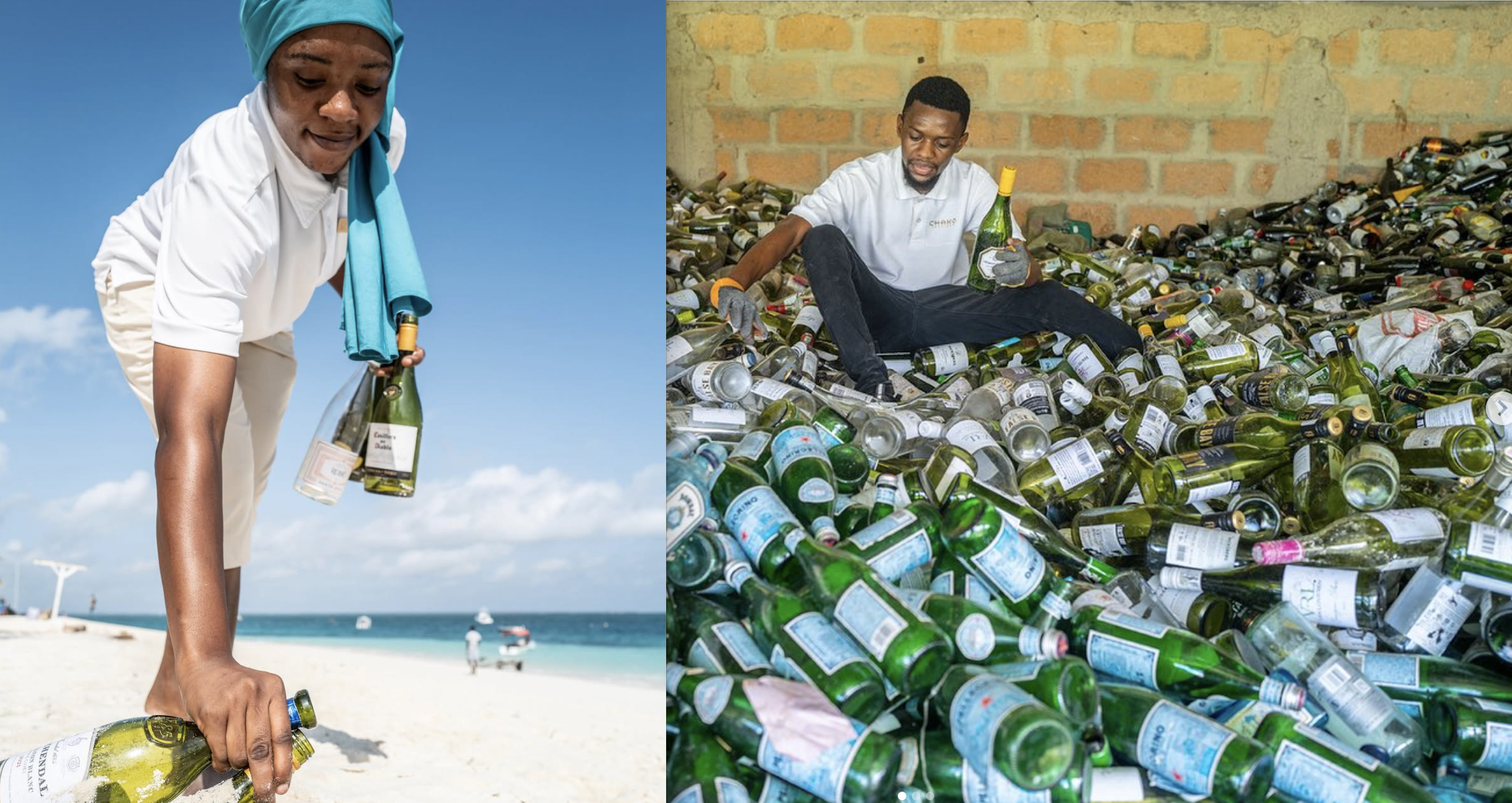
Zanzibar, a tropical island paradise.
Zanzibar, a semi-autonomous province of Tanzania, is renowned for its pristine beaches and rich cultural history. A former center of the spice and slave trades, present-day Zanzibar is infused with a blend of African, Arab, European and Indian influences. The Indian Ocean archipelago draws upwards of 600,000 tourists per year. While the travel industry undoubtedly provides a critical economic boon to the island, the downside to being such a desirable destination is the massive amount of waste that tourists generate and leave behind. Fortunately, CHAKO is dedicated to preserving the natural beauty of the island through the imaginative transformation of the more than two million wine bottles discarded by these tourists every year. But the mission of their enterprise runs deeper: They’re committed to strengthening the cultural and economic dynamism of formerly uneducated and unemployed residents through training, education, and the encouragement of artistry. Women constitute 65% of CHAKO’s workforce.
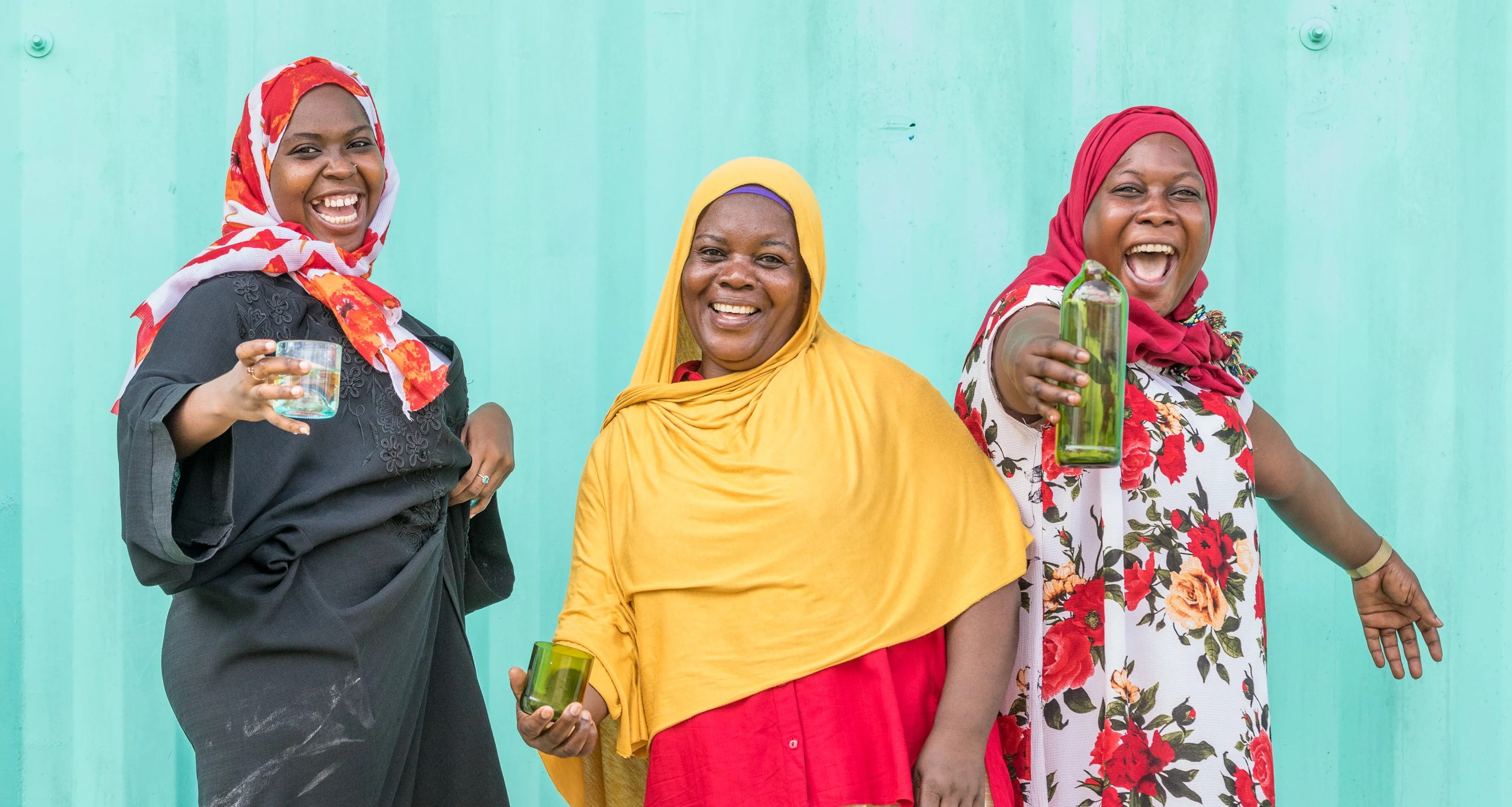
Chako is fair trade, sustainable and ecological.
CHAKO is a proud member of the World Fair Trade Organization, “which embraces a triple bottom line that encompasses the well-being of people, the preservation of the planet, and the pursuit of sustainable profit.“ CHAKO also partners with TUI Care Foundation, an independent charity that works globally and acts locally to create meaningful and long-lasting impact. TUI’s mission is to “lead the way in protecting the natural environment and empowering lives in travel destinations,” and their activities “build on the potential of tourism as a global force for good.”
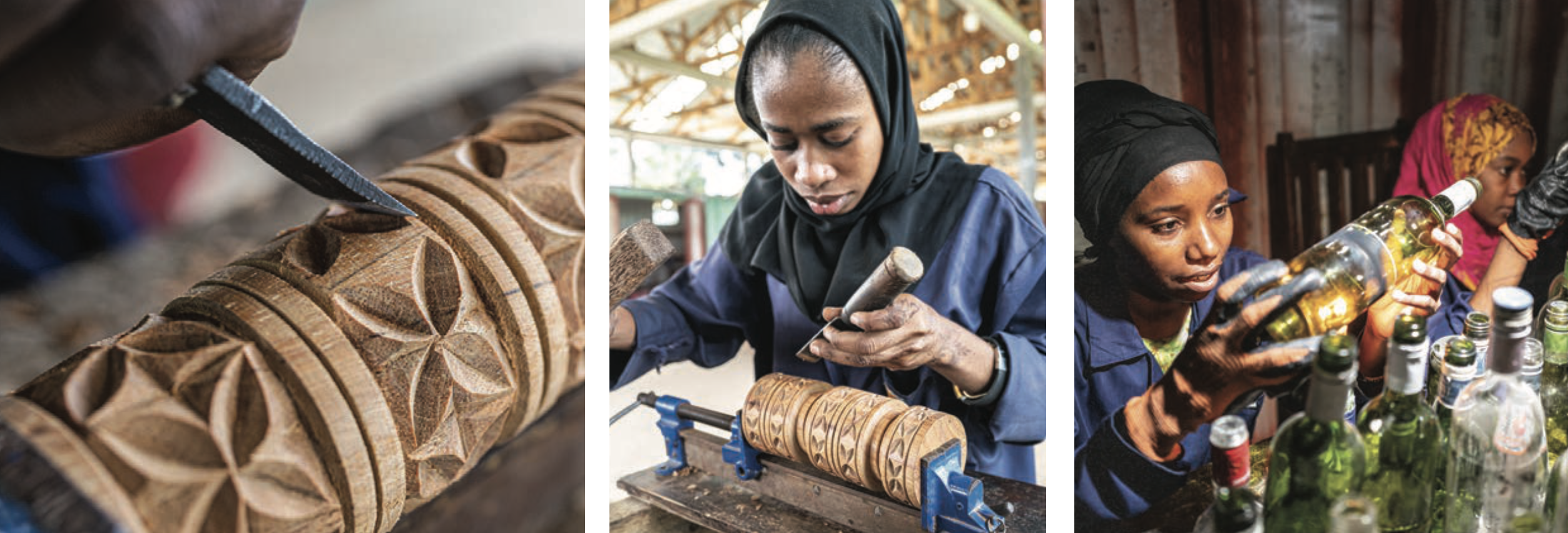
Beautiful containers made out of 100% recycled glass.
The artisans who craft CHAKO’s offerings find inspiration in many places. Zanzibar’s abundant flora and the island’s famous carved doors are reflected in the representations of flowers hand-carved into the Mkongo wood that’s used for lids, bases and embellishments to the glass. And it’s not surprising that CHAKO’s range includes various containers for spices, known as viungo in Swahili: Zanzibar is often referred to as the Spice Islands, as there was a time when many of the world’s spices could be found only there.
CHAKO operates in the middle of a spice farm. To reach their goal of being a zero-waste workshop where they upcycle glass and plastic, they rely heavily on solar energy. They collect rain water, which they use to wash the raw materials that are gathered from hotels, resorts, restaurants and dumps across the island. Wine bottles are cut using heat generated by candles, which allows work to continue when electricity is down, and people-peddled bikes power the equipment that shreds plastic for reuse. There’s no telling what those shampoo bottles will become!
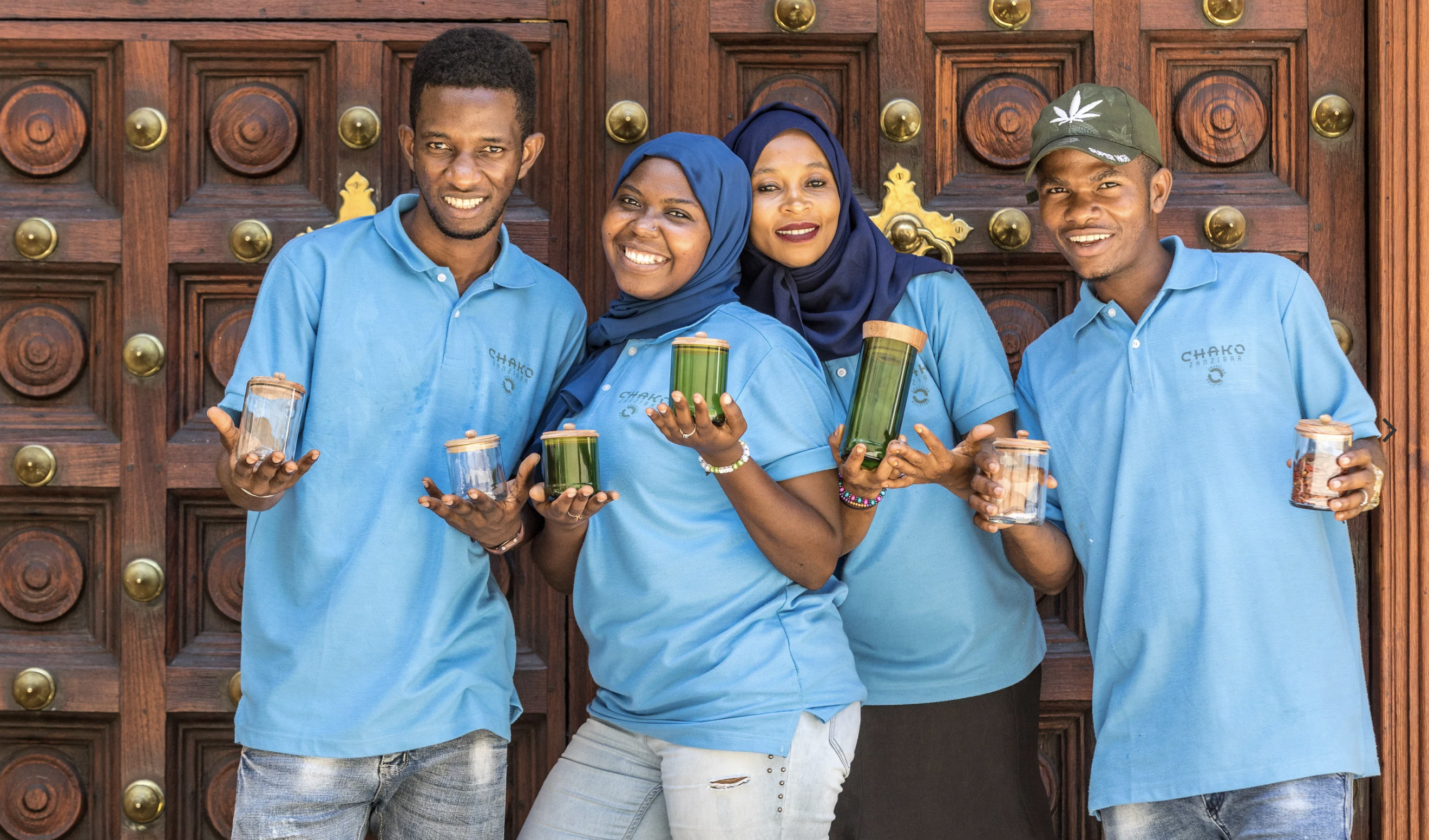
The enterprise runs tours in which travelers can not only observe the process of transformation, but can make their own containers to take home. The income generated from these tours allows CHAKO to offer free tours to the island’s schools and communities, thereby increasing awareness of the symbiosis between visitor and resident, and encouraging recycling among the locals.
Spices have a long history in Zanzibar
Spices were brought to the rich, fertile soils of Zanzibar a thousand years ago, and they’ve played a core role in its culture and economy ever since. A prized commodity, rivaling even gold, spices were associated with power and privilege, and demand quickly outstripped supply. Spices were integral to daily life: They were used to cure and preserve meat and, of course, in cooking. They were also indispensable ingredients in luxury products, from incense to perfumes.
Those controlling production became immensely wealthy. When Vasco de Gama visited Zanzibar at the end of the 15th century, he saw the potential for cheap and plentiful spice farming and soon after, the Portuguese had conquered the archipelago, which they controlled for 200 years. In 1698, the Portuguese were expelled by the Omanis, and Zanzibar became part of the Sultanate of Oman. It was during this epoch that Zanzibar’s plantation economy flourished. It centered on cloves, called karafuu in Swahili, and was dependent on the labor of slaves. In the early 1820s, the British began negotiations with Oman to end the global slave trade. It was eventually abolished in 1876 and in 1890, Zanzibar became a British Protectorate.
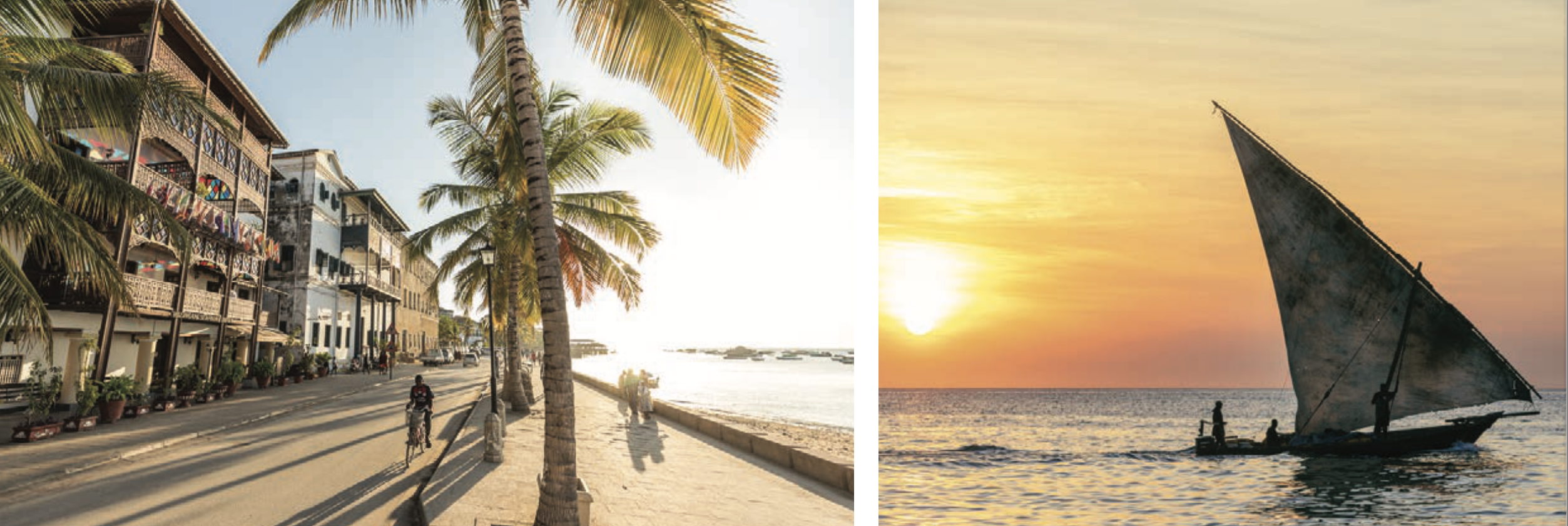
In 1963, the Zanzibar Revolution established the archipelago as an independent republic. A year later, it formed a union with Tanganyika (now Tanzania). Today the Spice Islands are a semi-autonomous region of Tanzania that maintains its own government and an identity unique from the mainland and from the rest of the world.
So much has changed over centuries of conquest and colonialism, but some things stay the same: To this day, the scent of cloves drying in the sun still permeates Zanzibar’s air. That fragrance is just one of the many delights awaiting those who visit the Spice Islands. It’s part of Zanzibar’s essence: It carries the message, Karibuni! “Welcome Everyone!” And CHAKO’s thoughtful, sustainable offerings bring that welcoming spirit into your home.
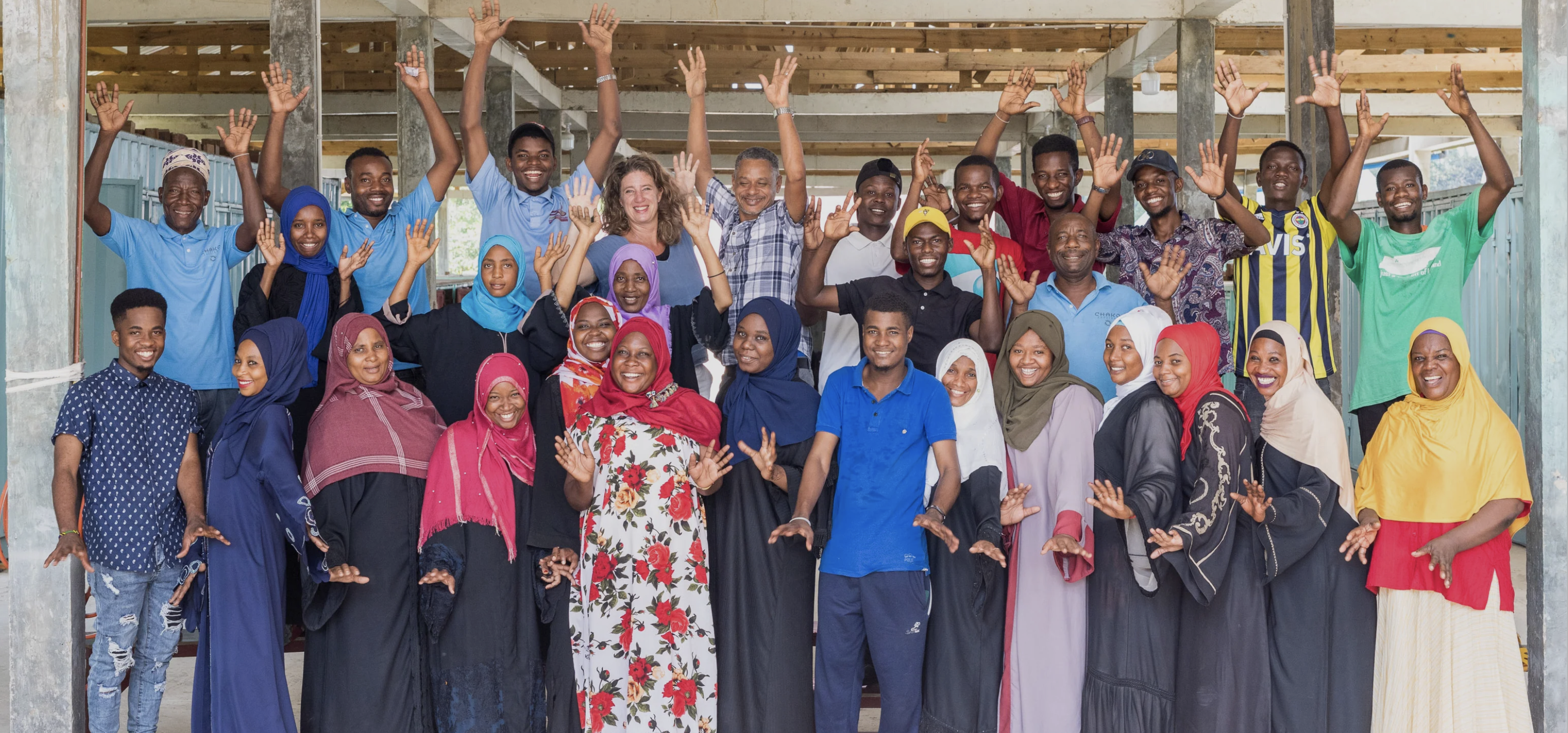
Find CHAKO's collection of products HERE


